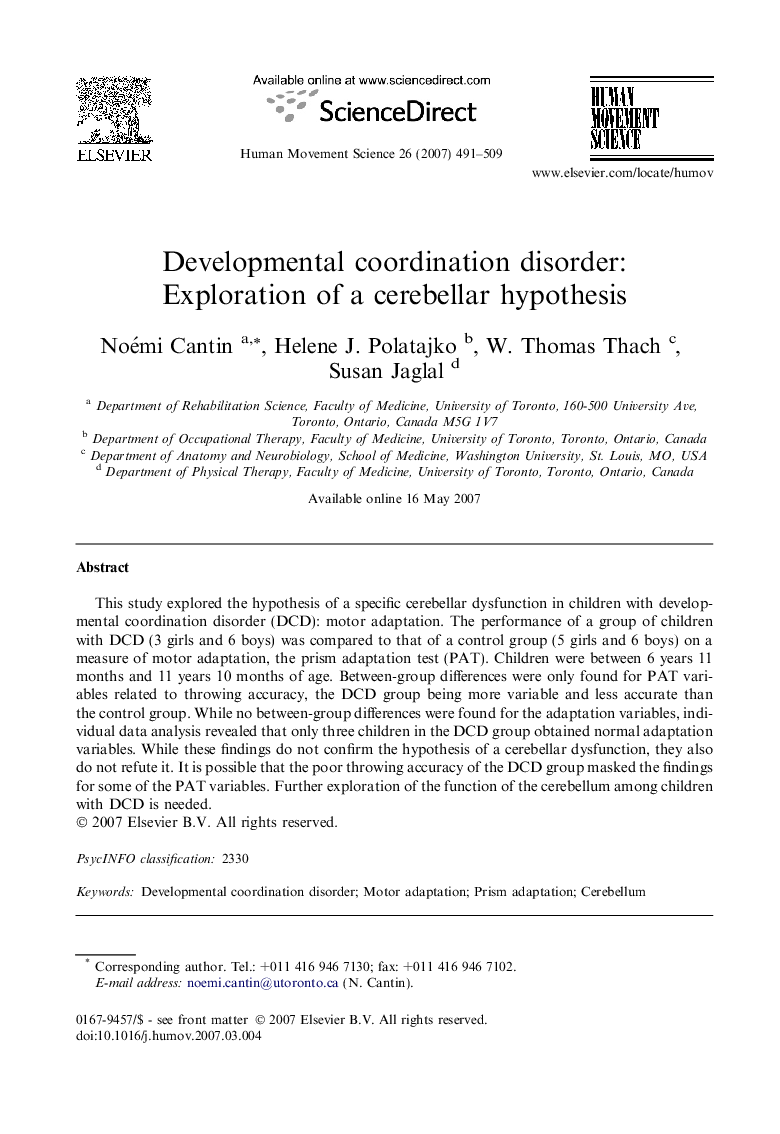| Article ID | Journal | Published Year | Pages | File Type |
|---|---|---|---|---|
| 928860 | Human Movement Science | 2007 | 19 Pages |
This study explored the hypothesis of a specific cerebellar dysfunction in children with developmental coordination disorder (DCD): motor adaptation. The performance of a group of children with DCD (3 girls and 6 boys) was compared to that of a control group (5 girls and 6 boys) on a measure of motor adaptation, the prism adaptation test (PAT). Children were between 6 years 11 months and 11 years 10 months of age. Between-group differences were only found for PAT variables related to throwing accuracy, the DCD group being more variable and less accurate than the control group. While no between-group differences were found for the adaptation variables, individual data analysis revealed that only three children in the DCD group obtained normal adaptation variables. While these findings do not confirm the hypothesis of a cerebellar dysfunction, they also do not refute it. It is possible that the poor throwing accuracy of the DCD group masked the findings for some of the PAT variables. Further exploration of the function of the cerebellum among children with DCD is needed.
